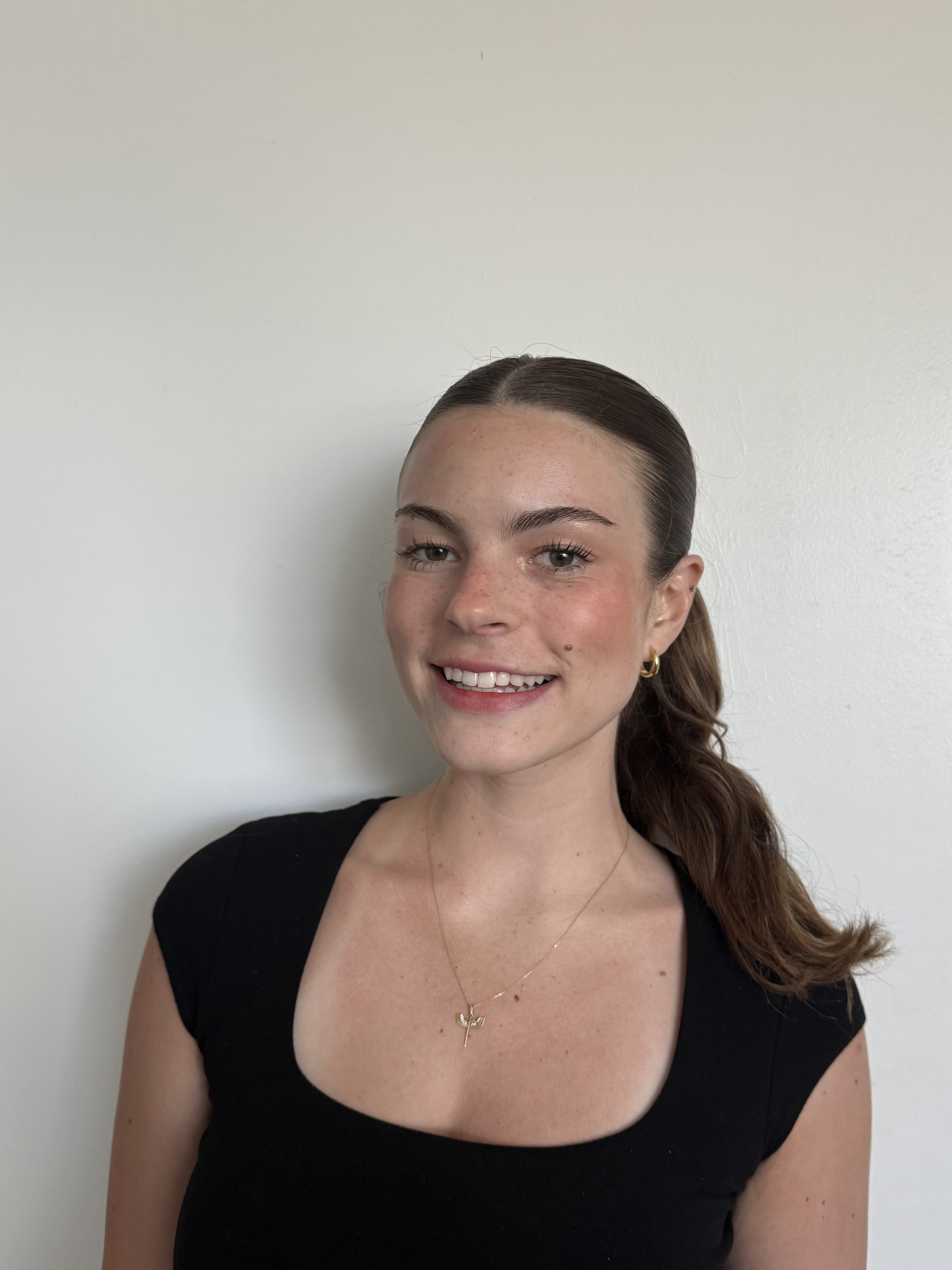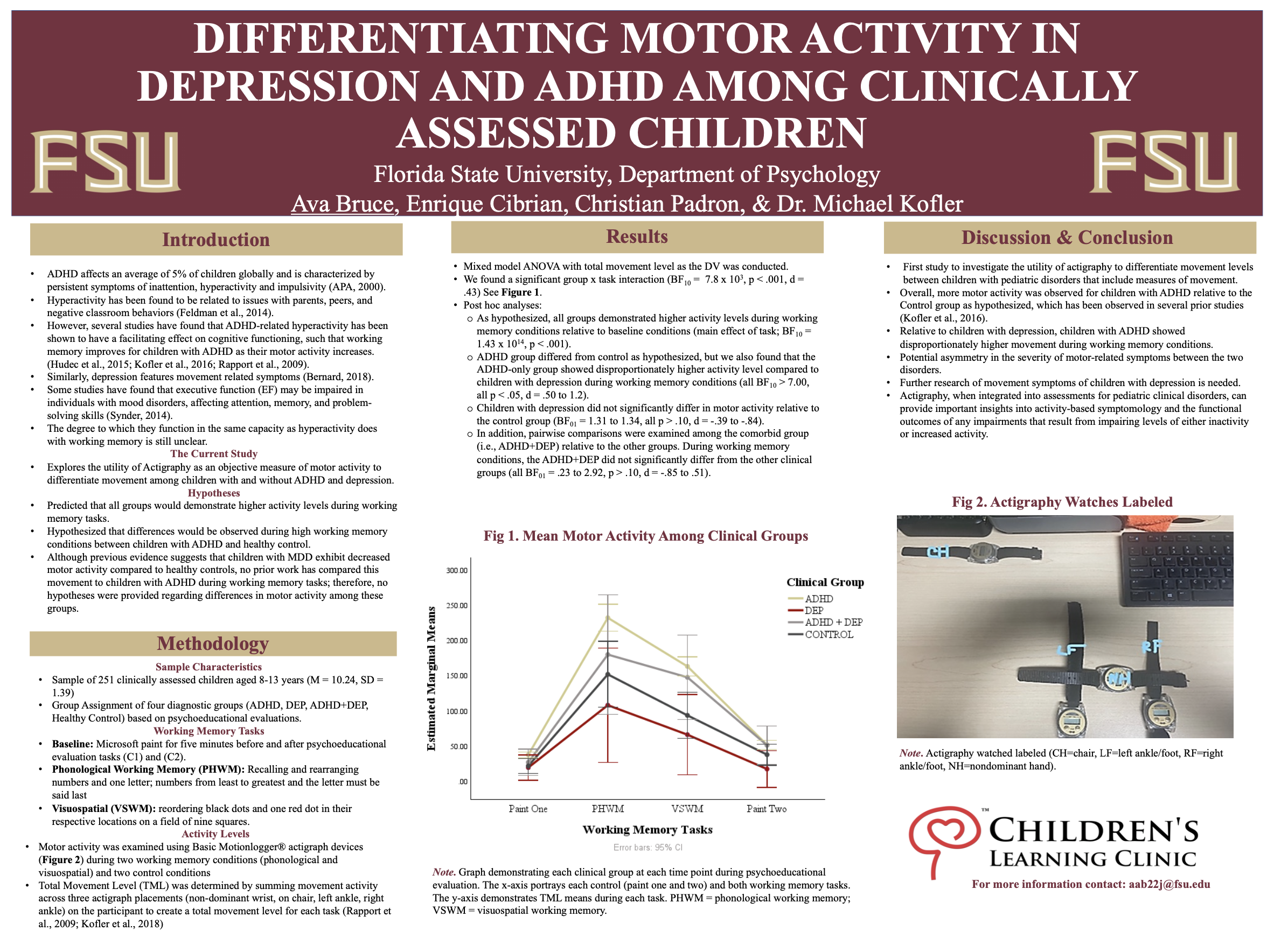Research Symposium
25th annual Undergraduate Research Symposium, April 1, 2025
Ava Bruce Poster Session 1: 9:30 am - 10:30 am/ Poster #4

BIO
My name is Ava Bruce and I am from Jacksonville Beach, Florida. I am currently a research assistant at the Children's Learning Clinic at Florida State University and will be fulfilling a full time position as their research coordinator sometime next semester. My recent experience in research has furthered my interest in ADHD psychopathology of children. My future career goals are to continue my education and research in the field of ADHD and/or autism with children.
Differentiating Motor Activity in Depression and ADHD Among Clinically Assessed Children
Authors: Ava Bruce, Dr. Michael KoflerStudent Major: Psychology
Mentor: Dr. Michael Kofler
Mentor's Department: Psychology Mentor's College: Arts and Sciences Co-Presenters:
Abstract
Hypothesis/Objective:
Across many studies, actigraphy has served as an important tool for characterizing motor-based symptomology, such as hyperactivity, restlessness, and psychomotor activity. Whereas several studies report positive relations with cognition and functional outcomes for hyperactivity in ADHD (Kofler et al., 2018; Sarver et al., 2015) with experimental and meta-analytic evidence indicating disproportionate increases in movement among children with ADHD relative to children without ADHD (Hudec et al., 2015; Kofler et al., 2016; Rapport et al., 2009). Less is known about the functional relation between decreased motor activity in depression and impairments in working memory.
The current study explores the utility of Actigraphy as an objective measure of motor activity to differentiate movement among children with and without ADHD and depression. Understanding these distinctions may provide insights into more precise diagnostic characterization of ADHD and depression symptomology.
Method:
Motor activity was examined using Basic Motionlogger® actigraph devices during two working memory conditions (phonological and visuospatial) and two control conditions among approximately 150 clinically assessed children with and without ADHD and Depression.
Data Analytic Plan:
A 4 (between-subjects factor Group: ADHD-only, DEP-only, ADHD+DEP, Control) x 4 (within-subjects factor Task: C1, PHWM, VSWM, C2) mixed model ANOVA will be conducted to detect differences in actigraph-measured activity across conditions and diagnostic groups.
Implications:
Utilizing actigraphy as an objective measure of motor activity may allow for clarification of activity-based symptoms, such as hyperactivity and psychomotor activity, in a range of disorders.
Keywords: Actigraphy, ADHD, Depression, Movement

